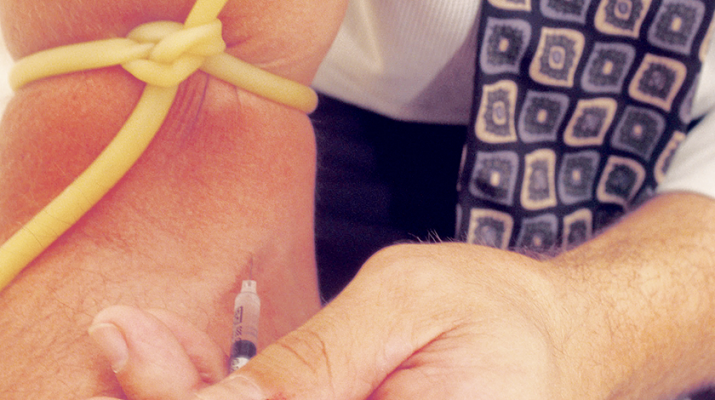Don’t let dreaded demons dominate your daily lives
By Kathy J. Peters

(Editor’s note: Kathy J. Peters is the advocacy coordinator at the Center for Family Life and Recovery, Inc., Utica).
September is National Recovery Month, and for former addicts who are on the other side of addiction, that’s something they and their families celebrate.
By the time they struggle through the depths of addiction, make their way through treatment programs, and find themselves on top of being clean and sober, they have conquered the demon and are ready to leave it behind.
But, what does that look like?
The recovery component is so vital to the success of staying substance-free. It’s about replacing old, destructive lifestyles with new, healthy ones and surrounding yourself with family and friends who do the same.
In the clinical world, recovery is defined as a process of change through which individuals improve their health and wellness, live self-directed lives, and strive to reach their full potential. It is built on access to evidence-based clinical treatment and recovery support services for all populations.
There are four main pillars that support a life of recovery: home, health, purpose, and community.
Having a home base that is safe and stable is critical. Building and managing a healthy lifestyle also contributes to recovery success.
Having purpose in life and filling your day with meaningful activities replaces the negative, destructive behaviors. Finally, building relationships and social networks give you a vital and unique part to play in your community.
Taking on challenge
The process of recovery is highly personal and occurs through many pathways. It may include clinical treatment, medications, faith-based approaches, peer support, family support, self-care, and others. Recovery is characterized by continual growth and improvement in one’s health and wellness that may involve setbacks. Because setbacks are a natural part of life, resilience becomes a key component of recovery.
Hope, the belief that these challenges and conditions can be overcome, is the foundation of recovery. A person’s recovery is built on his or her strengths, talents, coping abilities, resources, and inherent values. It is holistic, addresses the whole person and community, and is supported by peers, friends, and family members.
The process of recovery is supported through relationships and social networks. This often involves family members who become the champions of their loved one’s recovery.
They provide essential support to their family member’s journey of recovery and similarly experience the moments of positive healing as well as the difficult challenges.
Families of people in recovery may experience adversities in their social, occupational, and financial lives, as well as in their overall quality of family life. These experiences can lead to increased stress, guilt, shame, anger, fear, anxiety, loss, grief, and isolation.
Resilience is also vital for family members, peers, and friends who need access to supports that promote their health and well-being.
If you need help with breaking an addiction, we can help. If you have a loved one who needs help, we can support you. Whether you or someone you love is on the road to recovery, you don’t have to go it alone — we are here, we care, and we want to help you be successful in your recovery journey.
Call the Center for Family Life and Recovery, Inc. at 315-733-1709 or visit www.whenthereshelpthereshope.com as the first step in your new life.
• Kathy J. Peters is the advocacy coordinator at the Center for Family Life and Recovery, Inc., 502 Court St., Suite 401, Utica, N.Y. 13502. For more information, call 315-768-2650 or email kpeters@cflrinc.org.

